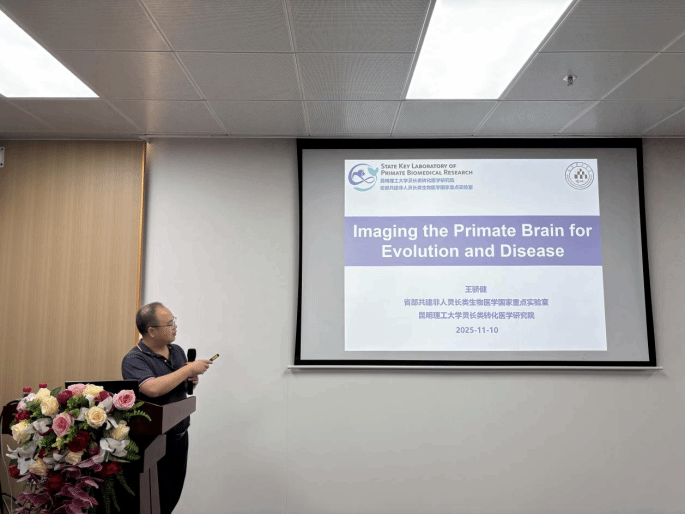
During the lecture titled “Imaging the Primate Brain: Evolution and Disease,” Prof. Jiao-Jian Wang discussed differences in brain structure and function between humans and non-human primates from the perspectives of neuroimaging and comparative neuroscience. His work aims to uncover how human brain evolution shapes cognitive functions and contributes to the mechanisms underlying neuropsychiatric disorders. Prof. Wang and his collaborators embedded anatomical features of human and macaque brains along a developmental timeline to construct a cross-species predictive model. They found that a model trained on macaque data predicted human chronological age with higher accuracy than a model trained on human data predicting macaque age. In addition, the research introduced an index of cross-species developmental age disparity to quantify differences along the neurodevelopmental trajectory. This index was significantly associated with behavioral performance in human visual acuity and picture vocabulary tests.
Prof. Wang further explored the evolutionary origins of psychiatric disorders, revealing that functional abnormalities observed in monkey models of autism parallel those found in autistic individuals. Incorporating multi-omics data, the study also identified shared biological foundations underlying the comorbidity of psychiatric and physical disorders.